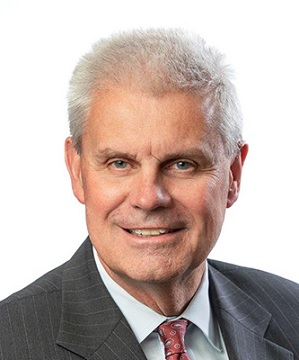How Do Leaders in Banking Manage Today’s Ever-Changing Environment?

In the last five years, the banking industry has experienced a period of change unprecedented in my 42 years of banking. These changes have forced leaders to think differently about how they manage and lead their organizations. Before discussing how managers in banking should respond to these changes and what it will take to successfully lead a bank into the future, it is important to understand what has changed and why. In my opinion, there are three key factors driving these changes.
- Technology has changed how we do our jobs, how our clients use our services and has introduced new competitors.
- The pandemic changed how we work and how we view our work-life balance.
- Differences in how generations approach work and their careers.
I could add others, but I believe these are the three most important ones driving change in our industry and forcing bank management teams to think differently about how they lead their teams. Technology has changed how we work, what products and services we offer and who we think of as a competitor. Maybe the biggest change of all is still yet to come. Artificial intelligence will impact us in ways we cannot imagine today. I will leave that to someone smarter than me to predict how that will evolve. Given all of this, how should bank leaders adapt and respond to these changes?
The rate of change in technology, and how it impacts clients and employees, continues to accelerate. How does senior management not only keep up, but anticipate the future? I have become a big believer in continually educating yourself by reading as much as possible, attending conferences and joining groups such as CEO peer networks. Listening to clients and employees is critical because they often hear about things first. We are all trying to figure this out, so exposing yourself to as many ideas as possible is a great way to determine what works for your bank.
Maybe no issue separates executive management and employees more than remote work! By overwhelming margins, managers want employees in the office and employees want as much flexibility as possible. On this issue, every organization must make its own decisions, but probably neither side is going to be completely happy. The key is you must serve the client, while managing the business for an acceptable return. I like the word “flexibility” where managers and employees can figure out what works best for their own department while maintaining some level of consistency across the organization. There is no perfect solution.
Millions of words have been written about the differences in generations, but the reality is our industry is going through a major generational change as the Baby Boomers retire and younger workers take their place. It is not uncommon for at least three generations to be working together so how you manage those differences in style is critical. Our bank has conducted training on the differences in generations and how they view work. It is true younger workers have much to learn from more experienced colleagues. But us older workers can also learn from our younger associates. There is a tie here to remote work. There is great value in younger workers sitting side by side with those who have worked there longer. The amount of learning and mentoring that can be done in the office is multiples of what occurs when employees are remote. I encourage our newer employees to be in the office for this reason. It is a great way to grow their career, but for it to be successful the managers and more experienced employees also need to be in the office.
Finally, leadership style matters. Top-down leadership does not work today. The world has changed too much and moves too fast. Leaders need to be great listeners, empathetic and engaged with their teams. Banking has become a complex business and fostering an atmosphere of teamwork and collaboration is the best way to navigate the challenges in front of us.
This Month's Guest Writer
Mark E. Bruin
President and CEO
The National Bank of Indianapolis